MercoPress. South Atlantic News Agency
Economy
-
Wednesday, September 21st 2011 - 02:10 UTC
Roubini suggests Greece default on its debts and follow Argentina’s 2001 example
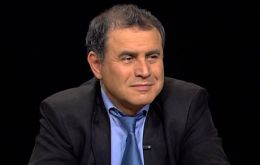
The economist who predicted the credit crunch and financial crisis has recommended that Greece leave the Euro, default on its debts and return to the drachma.
-
Wednesday, September 21st 2011 - 00:49 UTC
Uruguay alert to the extent of Brazil recent measures on auto imports

Uruguayan president Jose Mujica admitted a certain ‘stinging feeling’ following the recent Brazilian decision to increase import taxes on vehicles by 30%, which could also have an impact on Mercosur partners.
-
Wednesday, September 21st 2011 - 00:41 UTC
Mercosur coordinating temporary tariff mechanism to defend home markets

Mercosur coordinators are holding meetings in Montevideo to decide on a mechanism for temporary increases of national tariffs besides those already implemented under the common external tariff for the group.
-
Tuesday, September 20th 2011 - 22:00 UTC
Beijing says financial aid to Euro zone has ‘no preconditions’

Beijing's plan to provide financial aid to the European Union is not contingent on Europe supporting a proposal that could protect China from trade sanctions, a Commerce Ministry spokesman said on Tuesday.
-
Tuesday, September 20th 2011 - 21:48 UTC
IMF lowers global 2011/12 growth estimates, but warns things can get worse
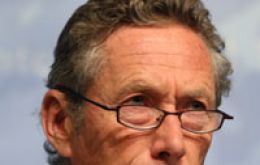
The global economic recovery is slowing, with world growth projected at 4% in both 2011 and 2012, down from over 5% in 2010, the IMF said in its latest forecast. And even this lowered projection counts on a lot going well.
-
Tuesday, September 20th 2011 - 21:33 UTC
(Paymaster) Germany needs Parliament approval on deciding Euro zone bailouts
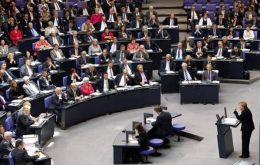
Leading lawmakers in German Chancellor Angela Merkel's coalition have agreed a draft law on an enhanced Euro zone bailout fund to give a greater say to parliament in line with a court ruling earlier this month.
-
Tuesday, September 20th 2011 - 21:27 UTC
Euro-zone growth forecasts plummet: 1.6% this year and 1.1% in 2012
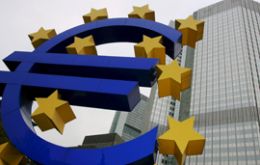
The IMF cut its growth forecast for the 17-nation Euro zone by nearly half a percentage point to 1.6% in 2011 and even weaker conditions are seen for next year with growth of just 1.1%. Currently the single currency region is scarcely growing at a 0.25% annual rate.
-
Tuesday, September 20th 2011 - 21:22 UTC
Good grades for Latam in IMF report; Uruguay’s forecasted growth: 6% in 2011
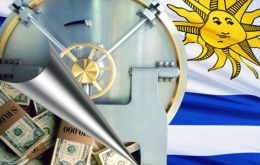
The IMF forecasts Uruguay’s economy will expand 6% in 2011 and 4.2% the following year. Estimates are in line with targets made public by Uruguay’s central bank.
-
Tuesday, September 20th 2011 - 09:12 UTC
Obama outlines tax the rich and reduce deficit plan; Republicans call it ‘class warfare’

President Barack Obama has outlined plans to reduce the US deficit and to kick-start economic growth. At the White House, he proposed cuts to healthcare benefits but said business and the wealthy must pay higher taxes.
-
Tuesday, September 20th 2011 - 09:09 UTC
S&P downgrades Italy’s rating by one notch with negative outlook

Standard and Poor's downgraded its unsolicited ratings on Italy by one notch to A/A-1 and kept its outlook on negative, a major surprise that threatens to add to concerns of contagion in the debt-stressed Euro zone.
